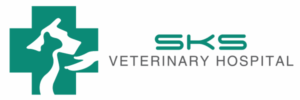Introduction
Just as humans benefit from regular health screenings and preventive care, our beloved pets require consistent healthcare monitoring to ensure long, healthy lives. Preventive healthcare plans represent one of the most valuable investments pet owners can make, offering early detection of potential health issues while providing significant cost savings over time. Understanding the importance of preventive care can literally add years to your pet’s life while enhancing their quality of life throughout their golden years.
Understanding Preventive Healthcare for Pets
What is Preventive Pet Healthcare?
Preventive healthcare encompasses a comprehensive approach to maintaining your pet’s health through regular examinations, diagnostic testing, and proactive medical interventions before serious health issues develop. This proactive strategy focuses on identifying potential problems in their earliest stages when treatment is most effective and less invasive.
The foundation of preventive care lies in establishing baseline health parameters for your pet, allowing veterinarians to detect subtle changes that might indicate developing health concerns. This approach contrasts sharply with reactive healthcare, where treatment begins only after symptoms become apparent.
The Science Behind Early Detection
Research consistently demonstrates that early detection and intervention significantly improve treatment outcomes while reducing overall healthcare costs. Many serious pet health conditions, including cancer, heart disease, and kidney dysfunction, develop gradually over months or years before obvious symptoms appear.
During this asymptomatic period, preventive healthcare measures can identify these conditions through diagnostic testing, allowing for immediate intervention that can slow progression, manage symptoms, and extend your pet’s healthy lifespan.
Comprehensive Components of Preventive Healthcare Plans
Physical and Clinical Examinations
Regular comprehensive physical examinations form the cornerstone of preventive healthcare. During these detailed assessments, veterinarians evaluate:
Cardiovascular Health: Heart rate, rhythm, and circulation assessment to detect early signs of cardiac disease that commonly affects older pets.
Respiratory Function: Lung capacity and breathing patterns evaluation to identify potential respiratory issues before they become life-threatening.
Musculoskeletal Assessment: Joint mobility, muscle tone, and gait analysis to detect arthritis, hip dysplasia, or other orthopedic concerns that could impact mobility and comfort.
Neurological Evaluation: Reflexes, coordination, and cognitive function testing to identify neurological conditions or age-related cognitive decline.
Advanced Diagnostic Testing
Modern preventive healthcare plans incorporate sophisticated diagnostic tools that provide detailed insights into your pet’s internal health status.
Complete Blood Analysis: Comprehensive blood panels reveal information about organ function, immune system status, and potential infections or diseases. These tests can detect anemia, liver dysfunction, kidney disease, and diabetes before clinical symptoms develop.
Liver and Renal Function Testing: These specialized tests evaluate the health of vital organs responsible for filtering toxins and maintaining metabolic balance. Early detection of liver or kidney dysfunction allows for dietary modifications and medications that can significantly slow disease progression.
Cholesterol and Glucose Monitoring: Just like humans, pets can develop metabolic disorders including diabetes and obesity-related conditions. Regular monitoring allows for early intervention through dietary management and lifestyle modifications.
Comprehensive Urine Analysis: Urinalysis provides valuable information about kidney function, bladder health, and metabolic conditions. This simple test can detect urinary tract infections, kidney stones, and diabetes before they cause serious complications.
Advanced Imaging and Cardiac Assessment
Chest Radiography: X-rays of the chest cavity provide detailed images of the heart, lungs, and surrounding structures. These images can reveal heart enlargement, lung disease, or masses before they cause breathing difficulties or other symptoms.
Electrocardiogram (ECG): Heart rhythm analysis helps detect cardiac arrhythmias, conduction abnormalities, and other electrical problems that could lead to sudden cardiac events.
Blood Pressure Monitoring: Hypertension in pets often goes undetected but can cause serious complications including kidney damage, retinal detachment, and stroke. Regular blood pressure monitoring allows for early intervention with appropriate medications.
Abdominal Ultrasonography: Non-invasive imaging of abdominal organs provides detailed information about liver, kidney, spleen, and bladder health. Ultrasound can detect masses, cysts, or organ abnormalities before they cause clinical symptoms.
Specialized Health Assessments
Dental Examination: Dental disease affects over 80% of pets by age three, leading to pain, infection, and potential systemic health problems. Regular dental assessments allow for early intervention with professional cleaning and treatment.
Orthopedic Evaluation: Joint health assessment is particularly important for senior pets and breeds predisposed to orthopedic conditions. Early detection of arthritis or joint disease allows for management strategies that maintain mobility and reduce pain.
Ophthalmological Assessment: Comprehensive eye examinations include intraocular pressure measurement, vision testing, cataract evaluation, and tear production assessment. Many eye conditions can be managed effectively when detected early.
Dermatological Screening: Skin and coat evaluation can reveal allergies, parasites, hormonal imbalances, or early signs of skin cancer. Regular dermatological assessment helps maintain comfort and detect potentially serious conditions.
The Financial Benefits of Preventive Care
Cost-Effective Healthcare Strategy
Preventive healthcare plans offer significant financial advantages compared to emergency or crisis-driven veterinary care. Early detection and treatment of health conditions typically cost a fraction of emergency interventions or advanced disease management.
For example, early detection and management of kidney disease through dietary modification and supportive care costs significantly less than emergency treatment for kidney failure, which may require hospitalization, IV fluid therapy, and intensive monitoring.
Membership Program Advantages
Many veterinary hospitals offer membership programs that provide substantial discounts on preventive care services. These programs typically include:
Reduced costs for routine vaccinations and preventive treatments
Discounted diagnostic testing and health screenings
Savings on dental care and professional cleaning
Reduced prices for quality pet food and supplements
Priority scheduling for appointments and services
Annual membership programs can save pet owners thousands of dollars while ensuring consistent, high-quality preventive care.
Age-Specific Preventive Care Strategies
Puppy and Kitten Healthcare
Young pets require frequent monitoring during their rapid growth and development phase. Preventive care for young animals focuses on:
Vaccination schedules to build immunity against infectious diseases
Parasite prevention and deworming programs
Nutritional counseling for optimal growth and development
Early socialization and behavioral guidance
Spay/neuter consultation and timing
Adult Pet Maintenance
Healthy adult pets benefit from annual comprehensive examinations and diagnostic testing. This life stage focuses on:
Maintaining optimal body weight and nutrition
Continuing vaccination and parasite prevention programs
Dental care and oral health maintenance
Regular exercise and activity monitoring
Reproductive health management
Senior Pet Geriatric Care
Pets over seven years of age require more frequent monitoring as they enter their senior years. Geriatric preventive care emphasizes:
Semi-annual comprehensive examinations
Enhanced diagnostic testing to detect age-related diseases
Pain management and mobility support
Cognitive function monitoring
Quality of life assessment and enhancement strategies
Long-term Health Benefits
Disease Prevention and Management
Regular preventive healthcare enables early identification and management of chronic conditions that commonly affect pets, including:
Diabetes Management: Early detection allows for dietary management and insulin therapy that can provide years of quality life.
Heart Disease: Cardiac conditions can be managed effectively with medications and lifestyle modifications when detected early.
Kidney Disease: Progressive kidney disease can be slowed significantly through diet, supplements, and supportive care.
Cancer Detection: Many cancers respond well to treatment when detected in early stages.
Enhanced Quality of Life
Preventive healthcare focuses not just on extending life but on maintaining quality of life throughout your pet’s years. Regular monitoring allows veterinarians to:
Manage pain effectively before it becomes severe
Maintain mobility and independence
Address behavioral changes that may indicate health issues
Provide nutritional support for optimal wellness
Monitor and manage medication effects
Implementing a Preventive Healthcare Plan
Choosing the Right Plan
Selecting an appropriate preventive healthcare plan depends on several factors:
Pet’s Age and Life Stage: Young pets require different monitoring than senior animals.
Breed Predispositions: Some breeds are prone to specific health conditions that require targeted screening.
Lifestyle Factors: Indoor versus outdoor pets have different risk profiles and healthcare needs.
Medical History: Previous health issues may require ongoing monitoring or specialized care.
Working with Your Veterinary Team
Successful preventive healthcare requires collaboration between pet owners and veterinary professionals. This partnership involves:
Regular communication about changes in your pet’s behavior or health
Adherence to recommended examination and testing schedules
Following through with recommended treatments and interventions
Maintaining accurate records of your pet’s health history
The Role of Nutrition and Lifestyle
Dietary Counseling and Longevity
Proper nutrition plays a crucial role in preventive healthcare. Professional dietary counseling addresses:
Life Stage Nutrition: Nutritional needs change as pets age, requiring adjustments to maintain optimal health.
Weight Management: Obesity significantly impacts lifespan and quality of life, contributing to diabetes, heart disease, and joint problems.
Therapeutic Diets: Special diets can help manage existing conditions and prevent progression of chronic diseases.
Supplement Recommendations: Targeted supplements can support joint health, cognitive function, and overall wellness.
Exercise and Mental Stimulation
Regular physical activity and mental engagement contribute significantly to longevity and quality of life. Preventive healthcare plans often include:
Exercise recommendations appropriate for your pet’s age and health status
Mental stimulation strategies to maintain cognitive function
Environmental enrichment suggestions to reduce stress and promote wellbeing
Technology and Modern Preventive Care
Advanced Diagnostic Capabilities
Modern veterinary medicine offers increasingly sophisticated diagnostic tools that enhance preventive care:
Digital Radiography: High-resolution imaging provides detailed information about internal structures with minimal radiation exposure.
Point-of-Care Laboratory Testing: Rapid diagnostic testing allows for immediate results and faster decision-making.
Telemedicine Consultations: Remote monitoring and consultation capabilities enhance access to preventive care advice.
Wearable Health Monitors: Emerging technology allows for continuous monitoring of activity levels, heart rate, and other health parameters.
Conclusion
Preventive healthcare plans represent one of the most valuable investments pet owners can make in their companion’s health and longevity. By focusing on early detection, regular monitoring, and proactive intervention, these comprehensive programs can add years to your pet’s life while ensuring those years are comfortable, active, and enjoyable.
The combination of regular examinations, advanced diagnostic testing, and professional guidance provides the foundation for optimal pet health throughout all life stages. When coupled with appropriate nutrition, exercise, and lifestyle management, preventive healthcare plans offer the best opportunity to maximize both the quantity and quality of time you have with your beloved companion.
The relatively modest investment in preventive care pays dividends through reduced emergency veterinary costs, better treatment outcomes, and most importantly, more years of joy and companionship with your pet. As veterinary medicine continues to advance, preventive healthcare plans will undoubtedly become even more sophisticated and effective, making them an essential component of responsible pet ownership.


